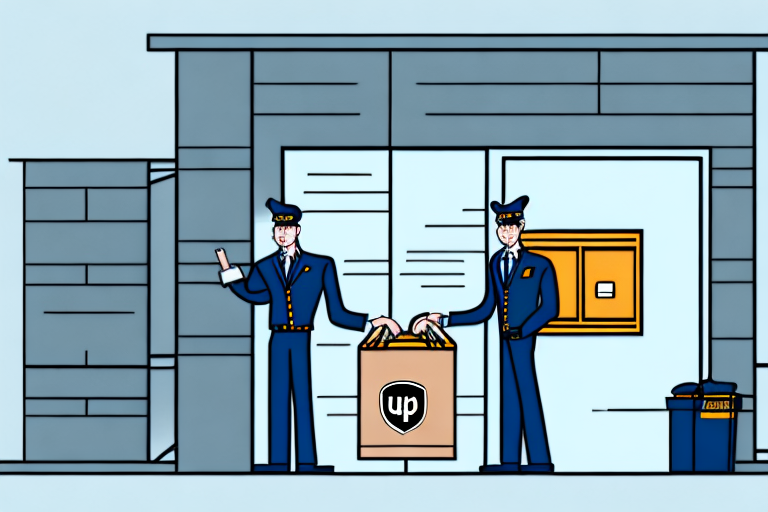Uncovering Cost Savings Through a Small Parcel Audit
As businesses continue to grow and expand their reach, small parcel shipping has become an increasingly integral part of their operations. However, with the growing complexity of the shipping landscape, many companies find themselves incurring unnecessary costs on their small parcel shipping expenses. This is why conducting a small parcel audit is crucial for any business that regularly ships small parcels. In this article, we will explore the various aspects of small parcel shipping and how a small parcel audit can help businesses uncover significant cost savings.
An Overview of Small Parcel Shipping
Small parcel shipping refers to the transportation of small packages through parcel carriers such as UPS, FedEx, or DHL. This type of shipping is ideal for businesses that need to send small and lightweight packages, typically weighing less than 150 pounds. Small parcel shipping offers businesses the flexibility to ship on short notice, with various service options to match delivery speed and cost.
In addition to its flexibility, small parcel shipping provides businesses with a range of tracking and monitoring options. With advanced tracking technology, businesses can monitor the progress of their shipments in real-time, ensuring that packages are delivered on time and to the correct destination. This level of visibility allows businesses to proactively address any issues that may arise during the shipping process, such as delays or lost packages.
Another advantage of small parcel shipping is the ease of integration with other business systems, such as inventory management and order fulfillment. By integrating small parcel shipping with these systems, businesses can streamline their shipping processes, reduce errors, and improve overall efficiency. This integration also enables businesses to provide their customers with accurate and up-to-date information on the status of their shipments, enhancing customer satisfaction and loyalty.
The Benefits of Conducting a Small Parcel Audit
A small parcel audit can provide numerous benefits to businesses:
- Cost Identification: Identify areas where overspending on small parcel shipping costs is occurring.
- Service Optimization: Gain insights into which shipping services best meet business needs.
- Process Streamlining: Discover opportunities to streamline shipping processes and reduce errors.
- Enhanced Efficiency: Implement strategies that lead to overall cost savings.
In addition to cost savings, a small parcel audit can help businesses improve their customer service. By analyzing shipping data, companies can identify ways to enhance delivery times and reduce the number of lost or damaged packages, leading to increased customer satisfaction and loyalty. Furthermore, regular small parcel audits help businesses stay up-to-date with changes in shipping regulations and carrier pricing, ensuring they are always obtaining the best rates and complying with new requirements.
How to Conduct a Successful Small Parcel Audit
Conducting a small parcel audit involves a thorough analysis of a company's shipping data to pinpoint areas of overspending. This process can be carried out internally or with the assistance of an external auditing firm. To conduct an audit internally, businesses should start by gathering all relevant data, including shipping invoices, tracking numbers, delivery times, and costs associated with each shipment.
Once the data is collected, it must be analyzed meticulously to identify patterns or discrepancies. This can be achieved using specialized software or through manual review. It's crucial to compare the shipping rates and fees charged by different carriers to ensure that the company is receiving the best possible rates.
Apart from identifying overspending, a small parcel audit can help businesses improve their shipping processes and minimize the risk of errors or delays. By analyzing delivery times and tracking information, companies can uncover areas where packages are frequently delayed or lost and take corrective actions. Additionally, they can identify opportunities to streamline their shipping processes, thereby reducing the time and resources needed to manage shipments.
Understanding the Different Types of Small Parcel Audits
There are several types of small parcel audits, including:
- Invoice Audits: Reviewing shipping invoices to identify billing errors.
- Service Level Audits: Assessing the quality of service provided by carriers.
- Carrier Contract Audits: Analyzing the terms and conditions of carrier contracts to ensure they are favorable for the company.
Additionally, there are:
- Compliance Audits: Ensuring the company adheres to all shipping-related regulations and laws, such as proper labeling and documentation for hazardous materials.
- Data Analysis Audits: Analyzing shipping data to identify trends and areas for improvement, aiding in the optimization of shipping processes and cost reduction over time.
By conducting a variety of small parcel audits, companies can ensure they are receiving the best possible service and rates from their carriers while maintaining compliance with relevant regulations.
Common Mistakes to Avoid When Conducting a Small Parcel Audit
When conducting a small parcel audit, businesses should be mindful of common pitfalls, such as:
- Overlooking Small Fees: Minor charges can add up over time, so it's essential to account for all fees.
- Not Reconciling Refunds and Credits: Failing to account for refunds and credits can result in inaccurate data analysis.
- Misunderstanding Carrier Contracts: Not fully understanding the terms of carrier contracts can lead to missed opportunities for savings.
- Failing to Analyze Shipping Data: Skipping data analysis prevents the identification of trends and patterns that could lead to cost savings and process improvements.
Properly analyzing shipping data is crucial. It allows businesses to make informed decisions about carrier selection, shipping methods, and packaging options, ultimately leading to a more efficient and cost-effective small parcel shipping strategy.
Analyzing Shipping Data to Identify Cost Savings Opportunities
Analyzing shipping data is pivotal in identifying areas where businesses can save money. For example:
- Delivery Speed: If a company is paying excessively for expedited deliveries, they might negotiate lower costs with the carrier or opt for slower, more cost-effective delivery options.
- Packaging: Analyzing packaging can reveal the use of oversized boxes or excessive materials, which increase shipping costs. Optimizing packaging size and materials can lead to significant savings.
- Customer Behavior Trends: Identifying patterns, such as frequent returns due to damaged shipments, can prompt businesses to reevaluate packaging or shipping methods, enhancing customer satisfaction and reducing return-related costs.
By addressing these areas, businesses can not only save money but also improve their sustainability practices and strengthen customer relationships.
The Importance of Negotiating Carrier Contracts for Cost Savings
Regularly negotiating carrier contracts is essential for optimizing small parcel shipping costs. Renegotiating contract terms ensures that companies receive the best possible pricing and service options. Effective negotiation can lead to:
- Reduced Costs: Securing lower rates based on shipping volume or loyalty.
- Improved Delivery Times: Establishing performance benchmarks for carriers.
- Increased Reliability: Ensuring consistent and dependable shipping services.
By collaborating with carriers to set clear expectations and service level agreements, businesses can enhance the reliability of their shipments, leading to increased customer satisfaction and loyalty. Prioritizing regular contract negotiations is therefore crucial for achieving sustained cost savings and improving overall shipping operations.
Leveraging Technology to Optimize Small Parcel Shipping
Technology plays a vital role in optimizing small parcel shipping processes. Businesses can utilize:
- Shipping Management Software: Compare service options from different carriers to choose the best fit for their needs.
- Real-Time Tracking: Monitor shipments in real-time and receive alerts for any delays or issues, allowing proactive problem resolution.
- Integration with E-commerce Platforms: Automatically generate shipping labels and streamline the fulfillment process, reducing manual errors and saving time.
By leveraging these technologies, businesses can enhance their shipping efficiency, reduce costs, and improve overall operational performance.
Tips for Implementing Cost-Saving Strategies After an Audit
After completing a small parcel audit, it's crucial to implement cost-saving strategies to ensure ongoing savings:
- Consolidate Shipments: Combine multiple shipments to reduce the number of deliveries and associated costs.
- Renegotiate Carrier Contracts: Use audit findings to secure better rates and terms with carriers.
- Optimize Packaging: Use appropriately sized packaging to minimize material usage and shipping costs.
- Adopt Sustainable Practices: Implementing sustainable packaging options can lead to long-term cost savings and improve the company’s environmental impact.
Regularly reviewing and adjusting these strategies ensures maximum efficiency and cost savings over time.
Case Studies: Real-Life Examples of Cost Savings Through Small Parcel Audits
Numerous businesses have realized substantial cost savings through small parcel audits:
- A company that audited its small parcel shipping costs saved over $100,000 in a year by negotiating different carrier pricing options.
- Another business discovered they were being charged for unused services, resulting in annual savings of $50,000.
- A third company identified consistent overcharges due to incorrect package dimensions and weights, saving over $20,000 per year.
These examples demonstrate the significant financial benefits that small parcel audits can provide, making them a worthwhile investment for any business aiming to reduce shipping expenses.
Future Trends in Small Parcel Shipping and Auditing
As the small parcel shipping industry evolves, businesses must stay ahead by embracing emerging trends and technologies:
- Drones for Last-Mile Delivery: Companies like Amazon and UPS are testing drone delivery in select areas, and this technology is expected to become more prevalent in the coming years.
- Artificial Intelligence and Machine Learning: These technologies enable more accurate auditing of shipping invoices, helping businesses identify and recover overcharges efficiently.
- Automation and Robotics: Enhancing warehouse operations and shipping processes to increase efficiency and reduce costs.
Staying informed about these trends allows businesses to continuously optimize their shipping strategies and maintain a competitive edge.
Best Practices for Maintaining Ongoing Cost Savings in Small Parcel Shipping
To sustain ongoing cost savings, businesses should adopt the following best practices:
- Regular Audits: Conduct small parcel audits periodically to identify new cost-saving opportunities.
- Continuous Negotiation: Keep negotiating carrier contracts to ensure the best rates and service levels.
- Embrace Technology: Utilize advanced shipping management tools and real-time tracking to enhance efficiency.
- Employee Training: Ensure that staff involved in shipping processes are well-trained and informed about best practices.
- Monitor Industry Trends: Stay updated on industry developments to quickly adapt and implement beneficial changes.
Implementing these practices helps maintain a cost-effective and efficient small parcel shipping strategy.
Conclusion: Why a Small Parcel Audit Should be Part of Your Business Strategy
Conducting a small parcel audit provides businesses with valuable insights into their shipping costs and identifies areas for potential savings. The benefits of a small parcel audit include cost reduction, improved shipping processes, and enhanced operational efficiency. Given these advantages, a small parcel audit should be an integral component of any business strategy focused on optimizing shipping expenses and maintaining a competitive edge in the market.









